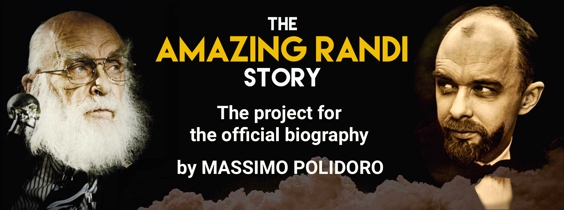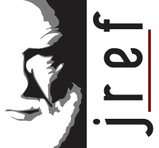Here is a recap of the stories that appeared last week at Science-Based Medicine, a multi-author skeptical blog that separates the science from the woo-woo in medicine.
A Day of Science-Based Medicine (Mark Crislip) Registration is now open for the North-East Conference on Science and Skepticism in New York City April 9-12. It includes a full-day program of presentations by the Society for Science-Based Medicine.
The Food Babe’s war on “chemicals” heats up again (David Gorski) The Food Babe uses the “appeal to yuckiness” to spread her ignorance of science and her enmity towards everything “chemical.” She has a new book out and has garnered a lot of media attention, both good and bad. She thrives on opposition and has rallied her troops to attack her critics; but she has never corrected statements that critics have shown unequivocally to be wrong, and she sells products with some of the very chemicals she demonizes.
How not to report about vaccine safety issues, Toronto Star edition (David Gorski) This newspaper published a misleading article about the alleged “dark side” of the HPV vaccine Gardasil. It told an affecting story of a girl supposedly harmed by the vaccine, but in reality there is no evidence that the vaccine was to blame. The newspaper presented an unbalanced, alarmist account and got many of its facts wrong. It was a prime example of irresponsible, incompetent journalism.
Glucosamine Update (Harriet Hall) A new study compared glucosamine/chondroitin to celecoxib, a non-steroidal, anti-inflammatory drug, in patients with moderate to severe osteoarthritis of the knees. Celecoxib worked better for the first 4 months, but by 6 months there was no difference. The authors recommended glucosamine/chondroitin for patients who can’t take NSAIDs, but the evidence for its effectiveness is contradictory and there are reasons to remain skeptical.
Reporting Research Misconduct (Steven Novella) The FDA monitors drug trials and finds misconduct in 2%. They take steps to correct the problems they find, but they have no systematic way to communicate their findings to the public. Corrections and retractions don’t get published in the peer-reviewed literature. Some people point to problems like these to dismiss science in general, but identifying them is a first step towards improving the institutions of science, which are admittedly flawed but not fatally flawed.
2015 NHIS Report on Complementary Health Approaches (whatever that means) (Jann Bellamy) The National Health Interview Survey asked people about their use of complementary and alternative medicine (CAM). 34% said they used it; diet supplements, deep breathing exercises and yoga topped the list. Some of the things they called CAM would have been more properly classified as belonging to evidence-based medicine. Research on CAM and acceptance by physicians is weighted towards CAM modalities that are not widely used by the public; homeopathy and acupuncture each account for less than 1.5% of CAM use.
Traditional Chinese Pseudo-Medicine Hodgepodge (Mark Crislip) More is published on acupuncture and traditional Chinese pseudo-medicine than other forms of alternative medicine. Some curious recent studies: acupuncture on a rubber hand, acupuncture produces different fMRI findings when patients know they are being treated, people with lower expectations of acupuncture are less likely to benefit, acupuncture as a treatment for mumps, colds, and flu, speculations about tattoos on Otzi the Iceman, traumatic bruising from Gua sha interpreted as “therapeutic extravasation of blood from the capillary bed,” and acupuncture to relieve pain in a Komodo dragon.
A Day of Science-Based Medicine (Mark Crislip) Registration is now open for the North-East Conference on Science and Skepticism in New York City April 9-12. It includes a full-day program of presentations by the Society for Science-Based Medicine.
The Food Babe’s war on “chemicals” heats up again (David Gorski) The Food Babe uses the “appeal to yuckiness” to spread her ignorance of science and her enmity towards everything “chemical.” She has a new book out and has garnered a lot of media attention, both good and bad. She thrives on opposition and has rallied her troops to attack her critics; but she has never corrected statements that critics have shown unequivocally to be wrong, and she sells products with some of the very chemicals she demonizes.
How not to report about vaccine safety issues, Toronto Star edition (David Gorski) This newspaper published a misleading article about the alleged “dark side” of the HPV vaccine Gardasil. It told an affecting story of a girl supposedly harmed by the vaccine, but in reality there is no evidence that the vaccine was to blame. The newspaper presented an unbalanced, alarmist account and got many of its facts wrong. It was a prime example of irresponsible, incompetent journalism.
Glucosamine Update (Harriet Hall) A new study compared glucosamine/chondroitin to celecoxib, a non-steroidal, anti-inflammatory drug, in patients with moderate to severe osteoarthritis of the knees. Celecoxib worked better for the first 4 months, but by 6 months there was no difference. The authors recommended glucosamine/chondroitin for patients who can’t take NSAIDs, but the evidence for its effectiveness is contradictory and there are reasons to remain skeptical.
Reporting Research Misconduct (Steven Novella) The FDA monitors drug trials and finds misconduct in 2%. They take steps to correct the problems they find, but they have no systematic way to communicate their findings to the public. Corrections and retractions don’t get published in the peer-reviewed literature. Some people point to problems like these to dismiss science in general, but identifying them is a first step towards improving the institutions of science, which are admittedly flawed but not fatally flawed.
2015 NHIS Report on Complementary Health Approaches (whatever that means) (Jann Bellamy) The National Health Interview Survey asked people about their use of complementary and alternative medicine (CAM). 34% said they used it; diet supplements, deep breathing exercises and yoga topped the list. Some of the things they called CAM would have been more properly classified as belonging to evidence-based medicine. Research on CAM and acceptance by physicians is weighted towards CAM modalities that are not widely used by the public; homeopathy and acupuncture each account for less than 1.5% of CAM use.
Traditional Chinese Pseudo-Medicine Hodgepodge (Mark Crislip) More is published on acupuncture and traditional Chinese pseudo-medicine than other forms of alternative medicine. Some curious recent studies: acupuncture on a rubber hand, acupuncture produces different fMRI findings when patients know they are being treated, people with lower expectations of acupuncture are less likely to benefit, acupuncture as a treatment for mumps, colds, and flu, speculations about tattoos on Otzi the Iceman, traumatic bruising from Gua sha interpreted as “therapeutic extravasation of blood from the capillary bed,” and acupuncture to relieve pain in a Komodo dragon.


